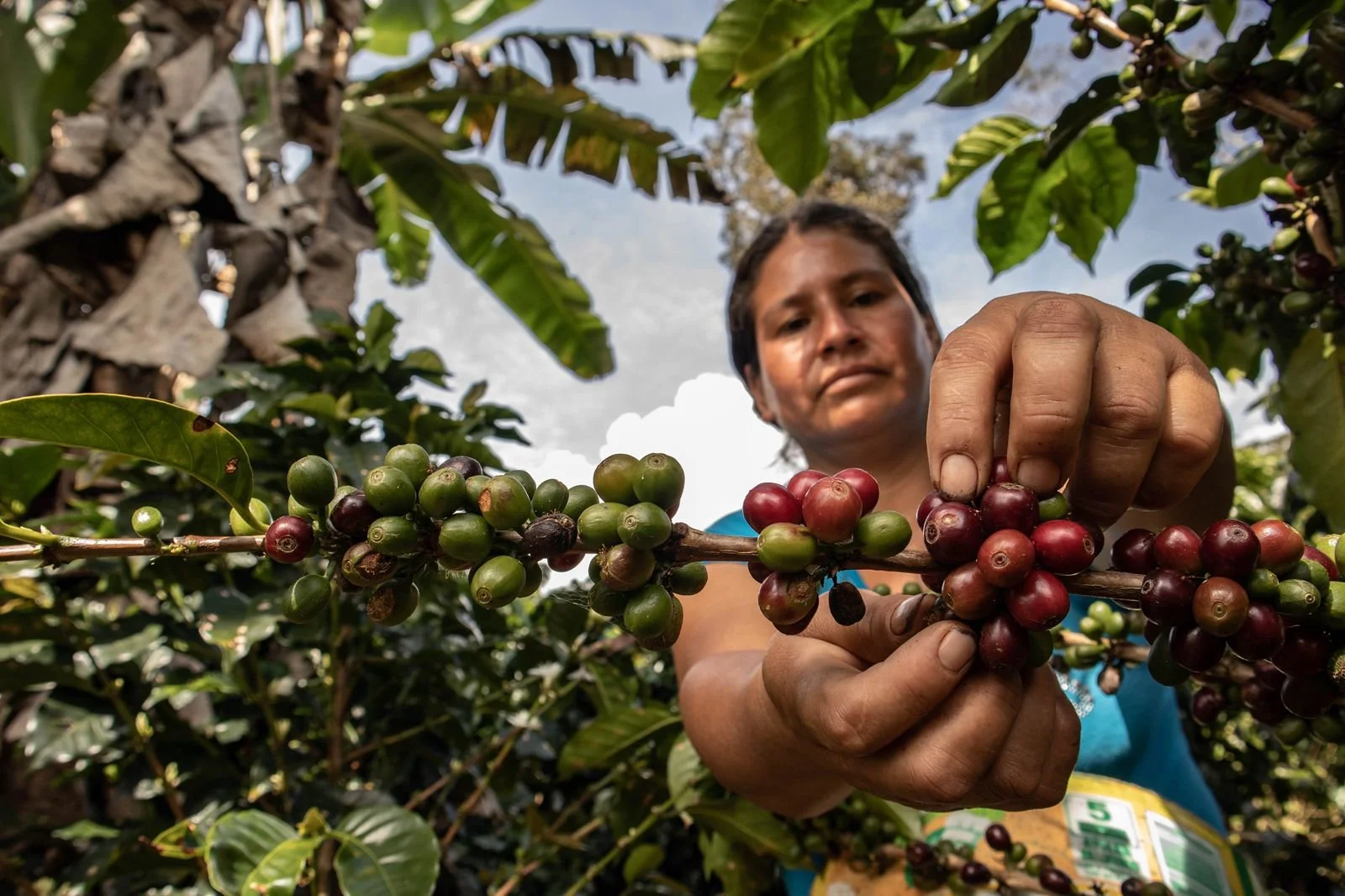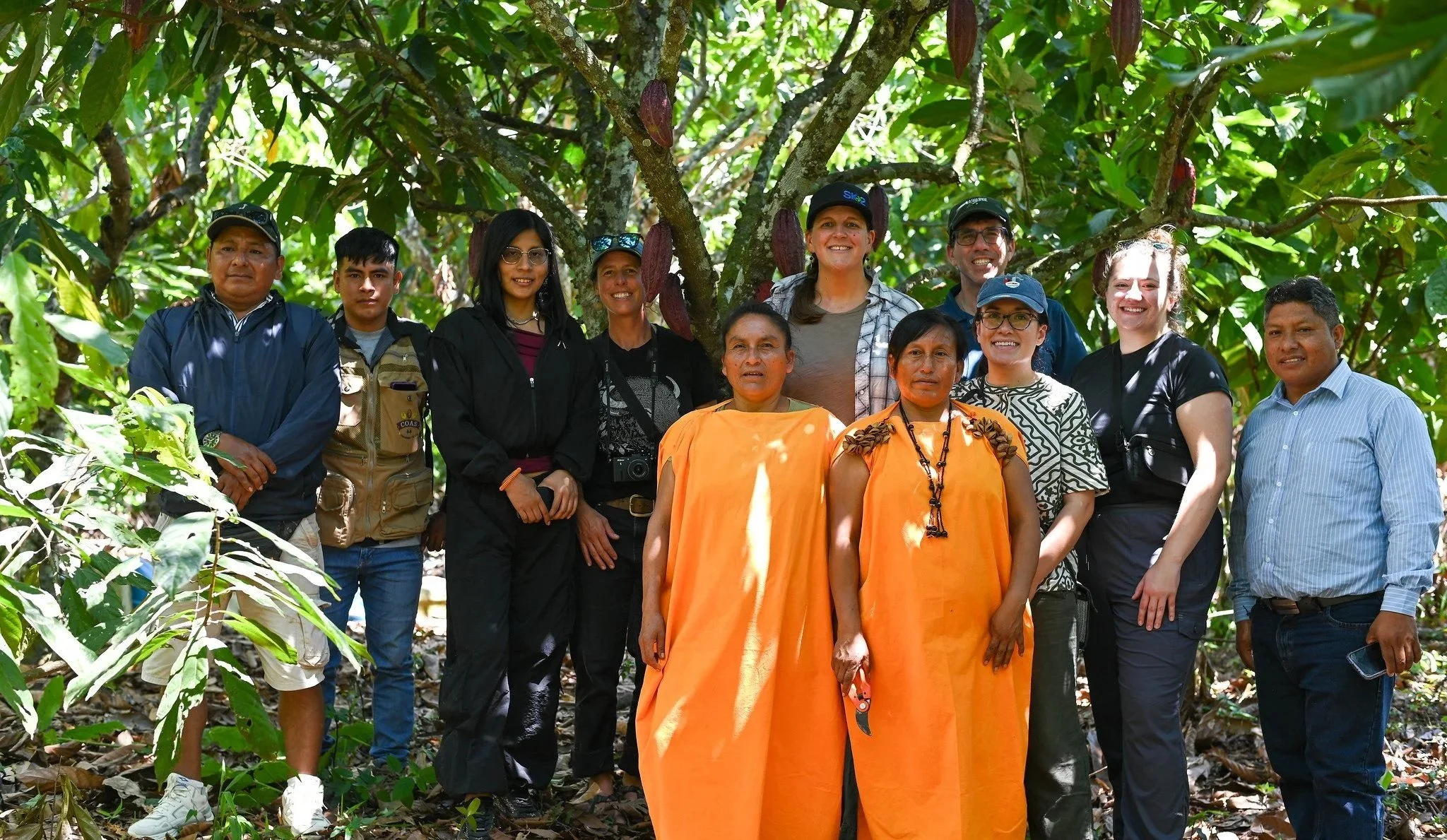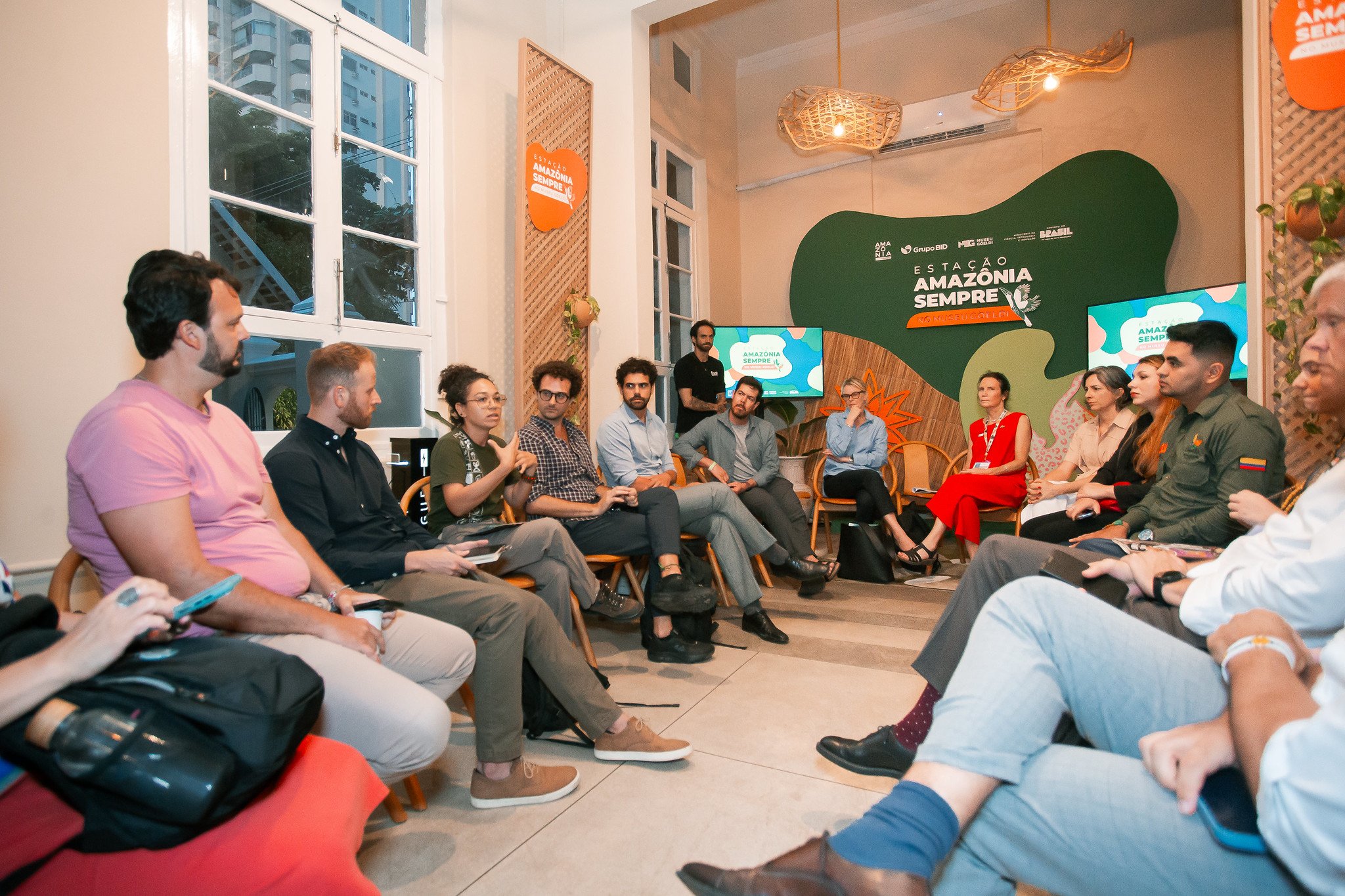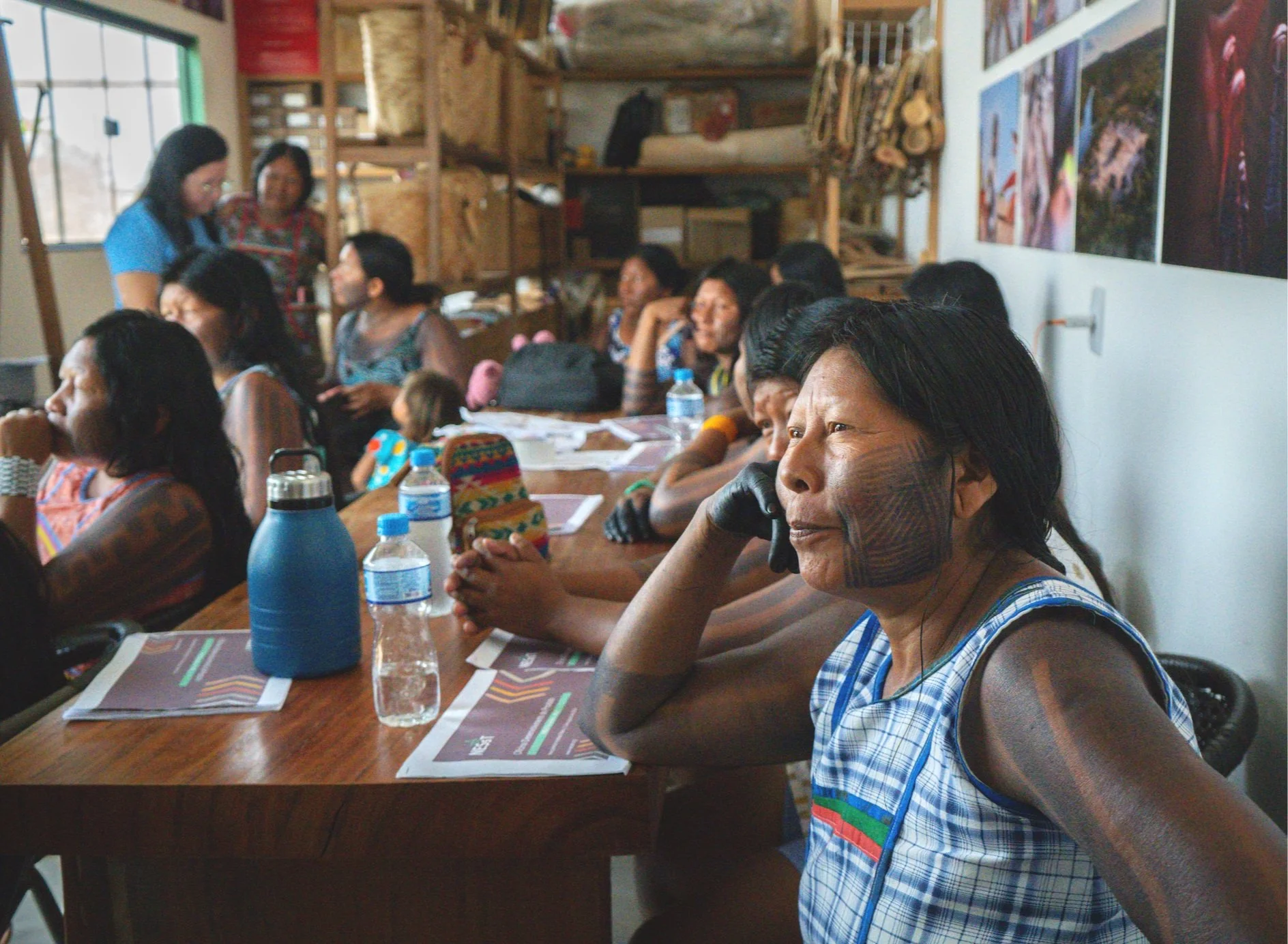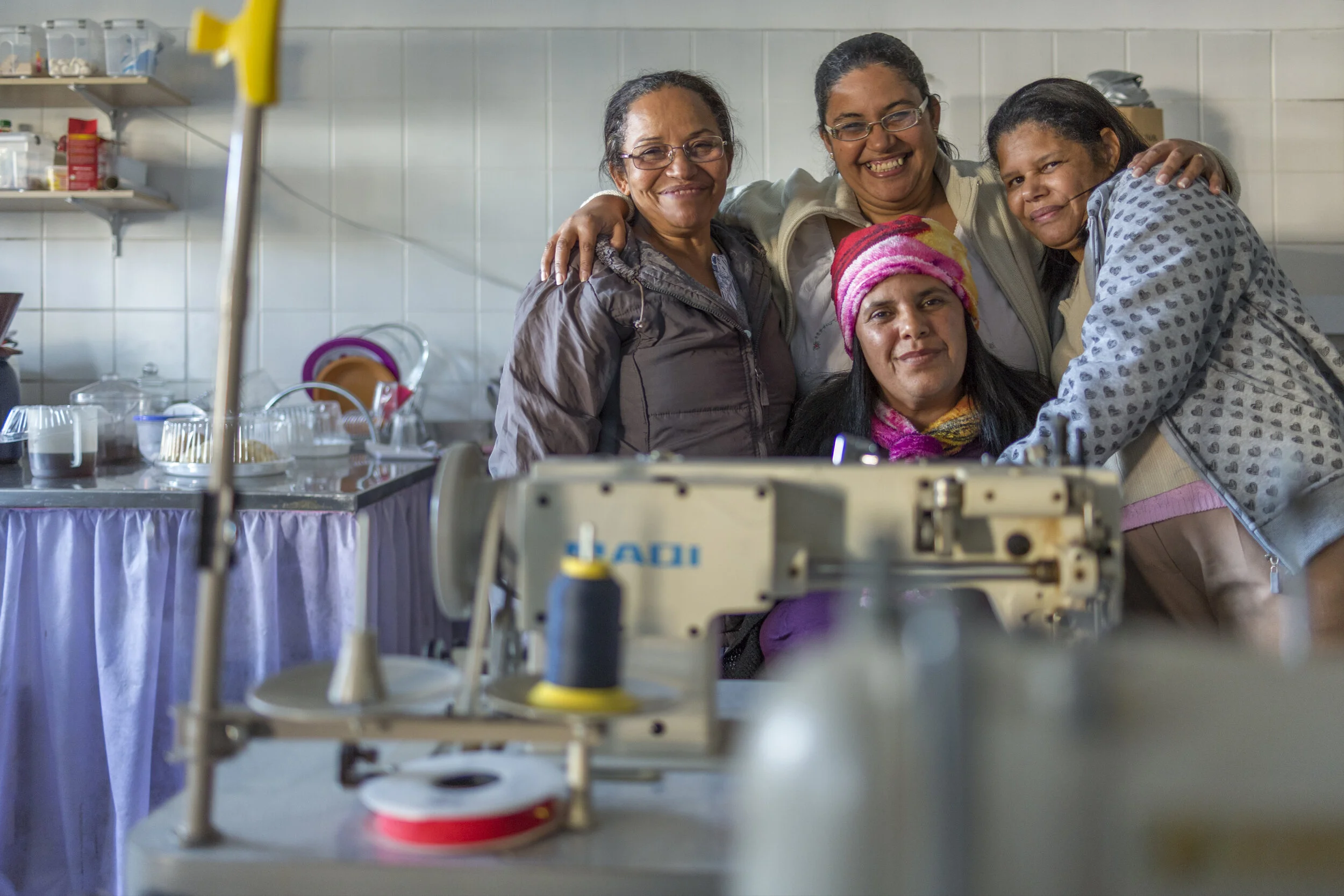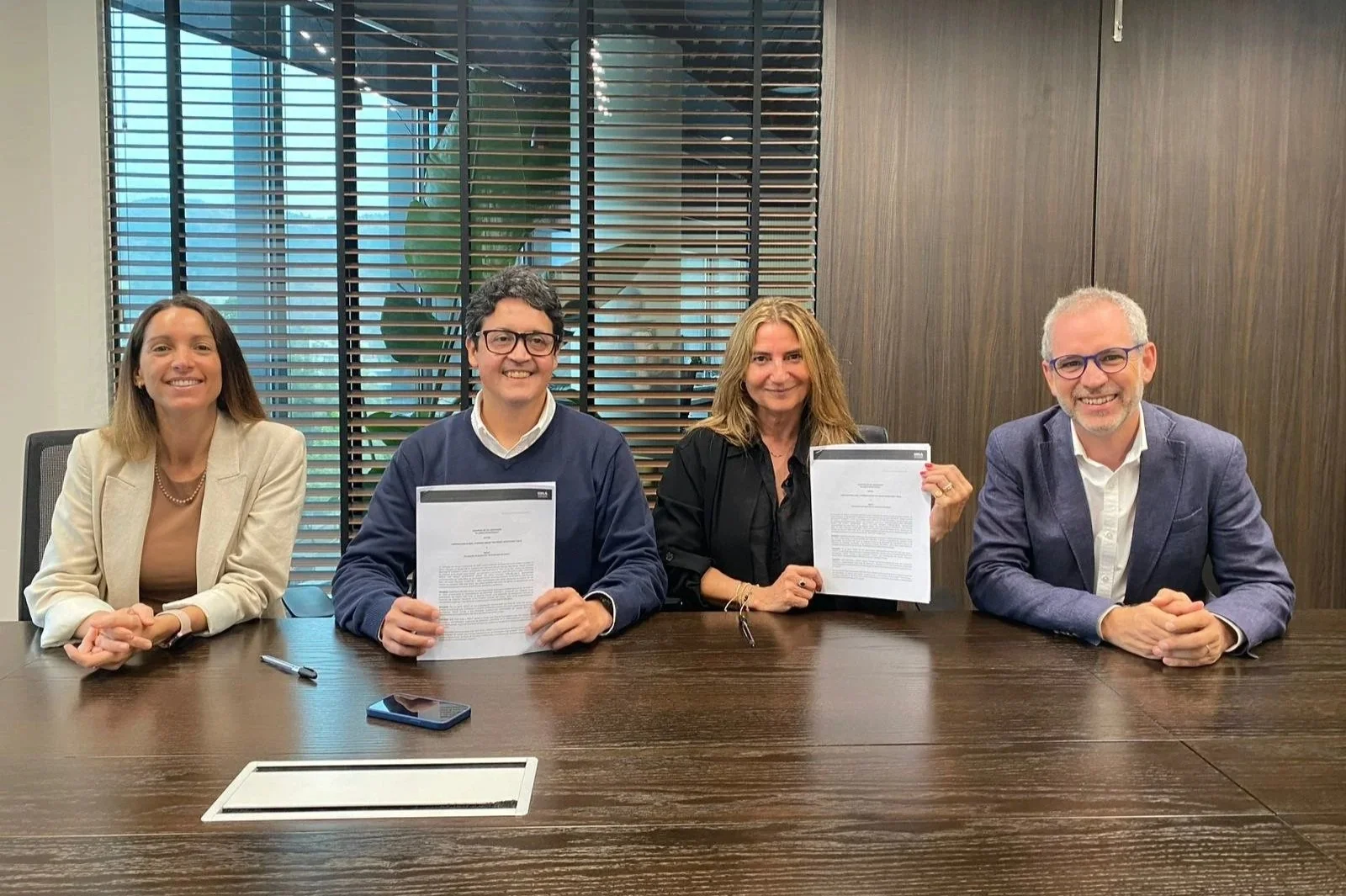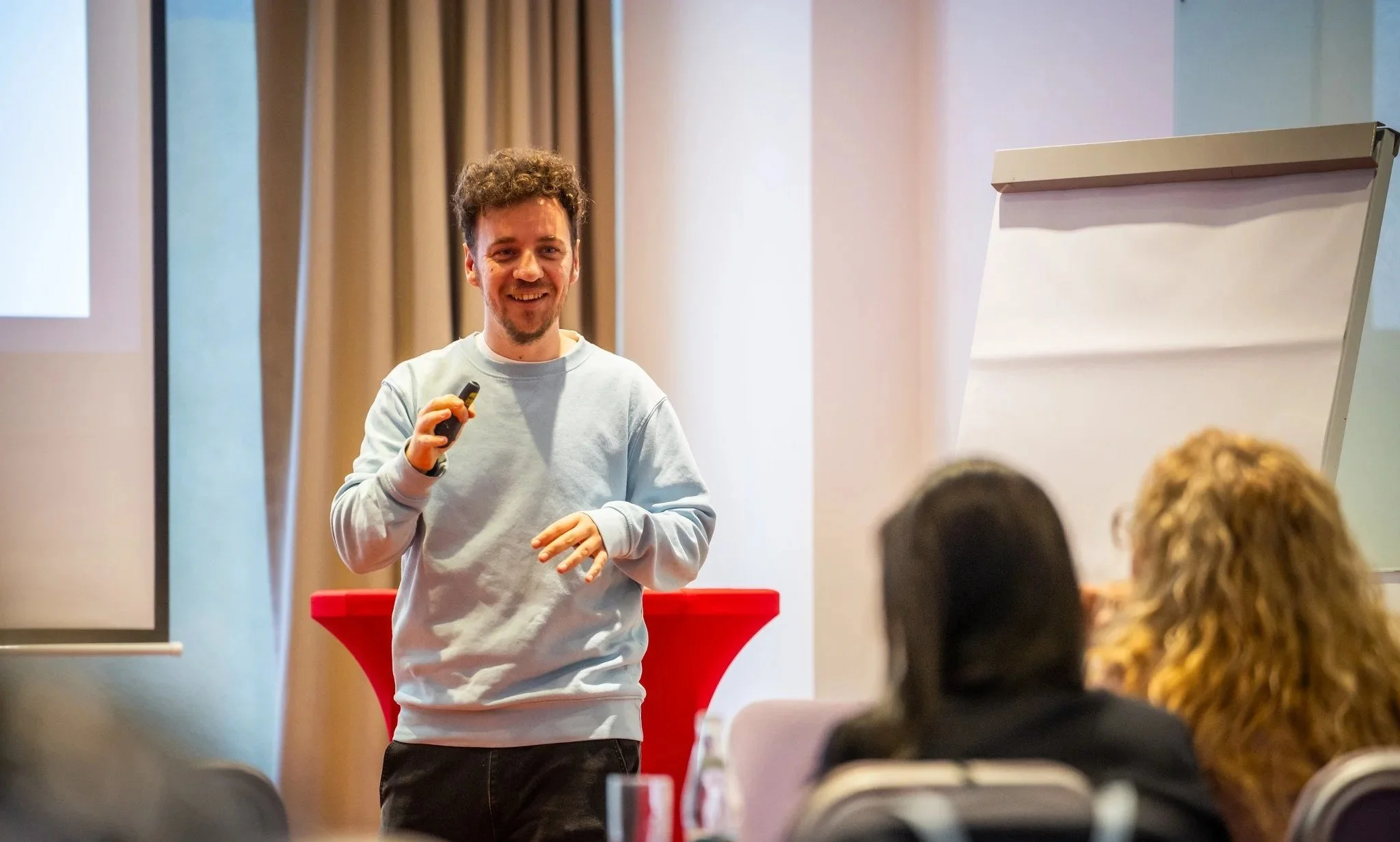NESsT is proud to announce that the Lirio Fund has surpassed $20 million USD in disbursements through 37 loans, which have contributed to over 1.5 million hectares of land preserved and 16,000 lives positively impacted.
This video brings together testimonies from leaders in the sociobioeconomy who have participated in key climate and finance forums, such as COP30 in Belém, with support from NESsT. Grounded in lived experience, these leaders’ perspectives highlight why their presence is essential in spaces where far-reaching decisions are made.
Cooperativa Agraria Sonomoro del Vraem (COAS) joined the NESsT Lirio Fund in 2023 and has since received a revolving capital line of credit and a term loan to scale its cacao production, ensure steady income for its cacao producers, and strengthen its commitment to conserving local biodiversity. Based on the cooperative’s strong track record of sustainable operations in a volatile market, in 2025, NESsT renewed the cooperative’s revolving credit loan, ensuring it can continue to pay local producers for raw cacao while meeting the rising global demand for high-quality cacao.
In 2025, the NESsT Lirio Fund extended repeat loans to Greenbox and Cuencas del Huallaga, reflecting our continued commitment to these enterprises’ business models and impact. Operating in regions where farming families have few income livelihood options and often turn to illicit crops and environment-damaging monocultures to generate quick income, these enterprises offer sustainable livelihood alternatives through sustainable, organic agriculture and meaningful technical assistance.
COP30, held in Brazil and hosted in the Amazon for the first time, marked a turning point in global discussions on climate and development. Against this backdrop, NESsT has been working more intentionally to bring local realities from the Amazon into global debates around access to financing. We spoke with Cairo Bastos, Program Manager at NESsT Brazil, about his key takeaways from Belém, what it takes in practice to build development models rooted in local territories, and why financing for the Amazon is a topic that concerns taxpayers and citizens more broadly.
Amazon Bioeconomy Blog Series
This video brings together testimonies from leaders in the sociobioeconomy who have participated in key climate and finance forums, such as COP30 in Belém, with support from NESsT. Grounded in lived experience, these leaders’ perspectives highlight why their presence is essential in spaces where far-reaching decisions are made.
COP30, held in Brazil and hosted in the Amazon for the first time, marked a turning point in global discussions on climate and development. Against this backdrop, NESsT has been working more intentionally to bring local realities from the Amazon into global debates around access to financing. We spoke with Cairo Bastos, Program Manager at NESsT Brazil, about his key takeaways from Belém, what it takes in practice to build development models rooted in local territories, and why financing for the Amazon is a topic that concerns taxpayers and citizens more broadly.
Across the Amazon, Indigenous Peoples, Black communities, riverine populations, and other traditional groups are leading enterprises that generate dignified livelihoods, strengthen local economies, and safeguard ancestral ways of life — all while keeping the forest standing.
Indigenous Peoples remain largely underrepresented in global decision-making spaces — revealing a contradiction between their leading role in protecting nature and their absence from the forums where environmental and economic policies are defined. This exclusion is no coincidence: it reflects historical, linguistic, financial, and political barriers that limit the access of those who live in and protect the territories to the tables where the future of biodiversity and the economy is decided.
Today, only a small share of the credit offered by financial institutions reaches those who protect the forest. If governments and multilateral organizations work together to change this, sustainable businesses can thrive — and so can the Amazon.
When structured effectively, blended finance can connect entrepreneurs who need support with investors who care about impact. To make this model easier to understand, NESsT has created an infographic that clearly shows how blended finance works in practice and highlights its role in the Amazon impact ecosystem. This visual tool breaks down complex financial ideas into simple language, making it valuable for entrepreneurs, policymakers, partners, and anyone interested in advancing the Amazon bioeconomy through innovative financing.
Many community-based enterprises in emerging sustainable socio-bioeconomy value chains lack the means and infrastructure to adopt digital monitoring and communication tools to track forest conservation and improve their production processes. With support from Cisco Foundation, in 2021, NESsT launched a search for early-stage technology enterprises that provide sustainable livelihoods to underserved communities and regenerate the environment. Read more about the initiative learnings here.
Our work on the ground in Brazil’s Amazon region has consistently shown that increasing women's participation is critical for the socio-bioeconomy to become a robust and sustainable national development strategy.
In this blog, we speak with bioeconomy entrepreneurs to better understand the challenges they face when applying for funding from multiple sources. Read it now to learn how complex application criteria and reporting demands impact their businesses and explore actionable recommendations for how the funding community can help ensure more equitable, inclusive access to financing.
NESsT’s recent study and extensive research identifies that the term ‘bioeconomy’ is often broadly interpreted by bioeconomy funders and global policymakers, sometimes straying far from a vision of environmental stewardship. We interviewed Indigenous leaders and entrepreneurs as part of ongoing efforts to deepen our understanding of their perspectives, vision and expectations of the bioeconomy as not just as an economic model, but as a way of life rooted deeply in ancestral tradition.
This blog delves into the methodology behind NESsT’s publication to improve the targeting, accessibility, efficacy, and efficiency of investments in the Amazon bioeconomy; it homes in on NESsT’s firm intention to bring local voices to global discussions around Amazon bioeconomy funding and explores how NESsT anchored the publication in authentic narratives and diverse Amazonian contexts while tailoring the message for the international financing community.
Gender Lens Blog Series
NESsT presents the results of our new gendered metrics and focus group discussions with portfolio company employees, suppliers, and/or distributors.
As part of its company review process, NESsT conducts annual/biannual focus group discussions with employees. Here are our learnings.
These 10 learnings will help you to design an experience for your Gender Lens Investing Advisory Board that is both productive and actionable.
In order to understand how other early-stage impact investing funds are incorporating gender lens investing into their portfolios, NESsT reviewed the activities of four main funds: Calvert Impact Capital, Root Capital, Alpha Mundi, and Acumen.
Women and girls with disabilities who are members of marginalized ethnic or racial groups or part of the lesbian, gay, bisexual, transgender, and intersex community often face "double discrimination" in the workplace based on their gender and disability status. The exclusion and violence against women and girls with disabilities have heavy social consequences and hinder economic development.
Español
Con el objetivo de fortalecer el ecosistema de inversión de impacto y movilizar capital hacia soluciones sociales y ambientales con impacto medible, GSG NAB Chile y NESsT firmaron una alianza estratégica que permitirá profundizar la colaboración entre inversionistas, empresas sociales, habilitadores y actores público-privados.
En diciembre de 2025, nos encontramos con aliados y empresas sociales en Santiago, Chile para recorrer juntos un día de aprendizaje y colaboración. Entre talleres, conversaciones y momentos de intercambio, exploramos cómo fortalecer capacidades y potenciar el impacto social y ambiental de cada emprendimiento, mientras compartíamos experiencias y sueños para el futuro.
La próxima semana, NESsT participará en la COP30, en Belém do Pará, una conferencia histórica que situará a la Amazonía en el centro de los debates mundiales sobre el clima y marcará la mayor presencia indígena jamás registrada en las negociaciones de la ONU. La organización estará presente junto con emprendedores de su cartera amazónica, aportando experiencias nacidas en los territorios y demostrando que las soluciones climáticas más eficaces provienen de quienes viven en la selva y la protegen.
NESsT y MetLife Foundation han sellado una alianza de dos años para potenciar el ecosistema del emprendimiento social en Chile. Esta iniciativa busca abrir caminos hacia un futuro más inclusivo y sostenible, apoyando a empresas sociales que generan empleos de calidad, fortalecen la inclusión financiera y promueven prácticas responsables con el medioambiente en comunidades con menos oportunidades.
NESsT anuncia el inicio de un programa de asesoría empresarial en el marco del proyecto Facilidad Financiera para Eco y Bionegocios de la Amazonía (EBBF Amazonía), en el que actuará como socio de innovación.
NESsT y Mujeres Empresarias (ME) anuncian una alianza estratégica destinada a acelerar emprendimientos liderados por mujeres en Chile, con el objetivo de promover empresas sustentables que generen impacto económico y social, y que puedan crecer con el intercambio de conocimiento y experiencias de otros países en esta materia.
En julio de 2025, NESsT formalizó su presencia legal en Colombia con la apertura de una nueva oficina. Si bien llevamos más de 5 años acompañando el crecimiento de empresas de impacto en el país, este paso nos permite fortalecer nuestra presencia local y seguir contribuyendo de forma más directa al desarrollo sostenible de la región.
Português
Este vídeo reúne depoimentos de lideranças de negócios da sociobioeconomia que, a partir de trajetórias fortalecidas com apoio da NESsT, estiveram presentes em fóruns centrais de debate sobre clima e financiamento, como a COP30, em Belém. Suas falas partem da prática e evidenciam por que a presença de quem atua diretamente nos territórios é essencial nos espaços onde decisões de longo alcance são construídas.
A realização da COP30 no Brasil, pela primeira vez sediada na Amazônia, marcou um momento decisivo para o debate global sobre clima e desenvolvimento. Nesse contexto, a NESsT intensificou sua atuação como ponte entre o debate global e a realidade dos territórios. Para aprofundar essa agenda, apresentamos a seguir uma conversa com Cairo Bastos, gerente de programas da NESsT Brasil, que compartilha reflexões sobre os principais avanços observados em Belém, os aprendizados acumulados pela organização e os caminhos para fortalecer um modelo de desenvolvimento que nasce dos territórios e dialoga com os desafios globais.
Em muitos territórios da Amazônia, comunidades indígenas, quilombolas, ribeirinhas e tradicionais estão à frente de empreendimentos que geram renda digna, fortalecem economias locais e preservam modos de vida ancestrais — tudo sem derrubar árvores. A sociobioeconomia vem ganhando força como um caminho concreto para conciliar desenvolvimento e conservação. Com apoio da NESsT, iniciativas como pequenas cooperativas, associações indígenas e empreendimentos familiares vêm transformando colheitas, manejo florestal, agroflorestas, extrativismo sustentável, produção de superalimentos e turismo de base comunitária em alternativas reais para o desenvolvimento.
As populações indígenas amplamente sub-representadas nos espaços de decisão global, o que evidencia uma contradição entre seu protagonismo na proteção da natureza e sua ausência nos fóruns onde se definem as políticas ambientais e econômicas. Essa exclusão não ocorre por acaso: reflete barreiras históricas — linguísticas, financeiras e políticas — que limitam o acesso de quem vive e protege os territórios às mesas onde se decide o futuro da biodiversidade e da economia.
Na próxima semana, a NESsT participará da COP30, em Belém do Pará — uma conferência histórica que colocará a Amazônia no centro das discussões globais sobre o clima e marcará a maior presença de povos indígenas já registrada nas negociações da ONU. A organização estará presente ao lado de empreendedores e empreendedoras do seu portfólio amazônico, levando experiências que nascem nos territórios e mostram que as soluções climáticas mais eficazes vêm de quem vive e protege a floresta.
Polski
Samo zawieszenie tęczowej flagi nad wejściem do lokalu czy znaczek w mediach społecznościowych choć ważne, nie zmieniają magicznie miejsca w bezpieczną przestrzeń dla osób LGBT+ – przekonuje międzynarodowa organizacja NESsT. W programie Violet Fund, poza finansowaniem, oferuje polskim firmom wsparcie w tym jak stać się prawdziwie inkluzywnymi miejscami pracy. Wskazówki pomagają również uniknąć pułapek “udawanej troski” o planetę czy osoby defaworyzowane.
Inkluzywność w samym DNA? Budowa suwerenności cyfrowej organizacji demokratycznych, wsparcie transformacji energetycznej, odporności miast, suwerenności żywnościowej? Pokazywanie że ruch spółdzielczy to nie relikt PRL, a żywa i demokratyczna odpowiedź na wyzwania dzisiejszego świata? To wszystko dzieje się pod jednym dachem Coop.Tech Hub, unikatowej organizacji która niedawno dołączyła do NESsT Violet Fund
“Pierwszy krok do prawnego opisania związków nieformalnych to klucz dla systemowego uznania, że osoby LGBTQIA+ istnieją i mają prawo do pełnej obecności w społeczeństwie. Będzie to też impuls do większej inkluzywności w miejscach pracy, który przyniesie korzyści polskim firmom i całej gospodarce” – zauważają eksperci i NESsT. Ta międzynarodowa organizacja wspierająca równościowe traktowanie mniejszości w miejscach pracy prowadzi właśnie nabór do Violet Fund, programu dla pracodawców tworzących bezpiecznych miejsc dla osób LGBT+.
ROMÂNĂ
În acest interviu vorbim cu Mihai Cepoi, CEO, Jobful, compania din spatele celei mai mari platforme de angajare pentru persoanele afectate de războiul din Ucraina – jobs4ukr.com – și cu Rumen Mihaylov, Insights Capability Leader la Inter IKEA Group, a căror colaborare a început în cadrul NESsT – IKEA Social Entrepreneurship Accelerator Program din Europa Centrală și de Est. Ceea ce a debutat ca o relație de mentorat structurată s-a transformat rapid într-un spațiu de dialog sincer, învățare comună și prietenie autentică.
NESsT anunță astăzi că Ioana Samoil a fost numită NESsT Country Director pentru România, subliniind concentrarea investitorului de impact pe accelerarea întreprinderilor sociale românești care creează locuri de muncă demne pentru persoanele din comunitățile excluse, inclusiv refugiați, migranți, femei, tineri în situații de risc, comunitatea LGBTQIA+ și alte persoane care se confruntă cu bariere sistemice în calea oportunităților economice.


